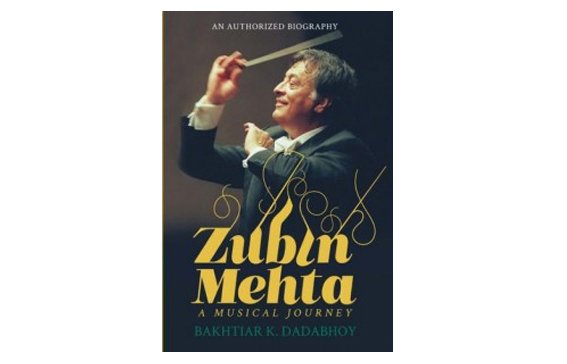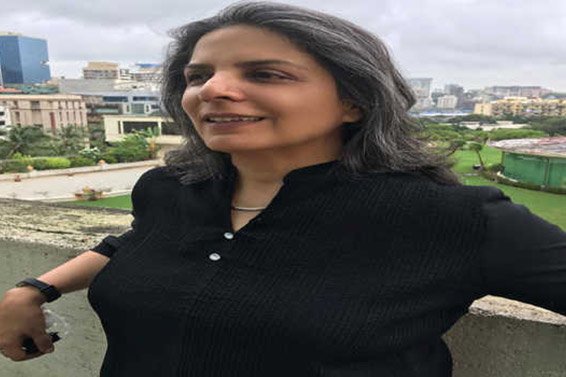Zubin Mehta: A musical journey; book review
 Zubin Mehta: A Musical Journey
Zubin Mehta: A Musical Journey
Bakhtiar K Dadabhoy
Penguin
Pp 430
R899
ZUBIN MEHTA was “a child of music”, having learned to sing and speak at almost the same time. While growing up, he was attracted not to toys, but to musical instruments, his favourite being a pair of drum sticks. Mehta grew up in Bombay’s Cuffe Parade in a Parsi family, which like other Parsi families, had embraced western classical music.
Bakhtiar K Dadabhoy writes an intense story, weaving together the maestro’s “music and life, history and biography, professional and personal”. Though the first hints of Mehta’s future greatness came from a horoscope reading—”the child would be a leader of a group of people”—his musical foundation was undoubtedly laid by his father Mehli Mehta, “a musician and conductor of no mean merit”. The senior Mehta also founded the Bombay Symphony Orchestra in 1935, a year before Mehta was born. So the child was surrounded by classical music, Schubert, Brahms, Bach, Mozart, Beethoven, Tchaikovsky, etc, while growing up.
Dadabhoy quotes an interview Mehta’s mother Tehmina gave in 1988 in which she said that, as a child, he had two or three favourite records. When he was sick or in pain, he would be soothed if they played the records. But as soon as the music stopped, he would start crying. The general lack of enthusiasm for western classical music in Bombay—and India—and the prospect of a potential career in western classical music convinced the family to send Mehta to Vienna—which would become his second home—at the age of 18 years. And it’s to Vienna that he owes his “whole concept of sound”. In fact, in 1960, at 24 years of age, he became the conductor of the Montreal Symphony Orchestra and, a year later, he was named conductor of the Los Angeles Philharmonic. In 1961, at the age of 25 years, he also became the youngest conductor to lead the Vienna Philharmonic Orchestra, one of the many firsts in his grand musical career. On January 19, 1968, Time magazine put him on its cover. He was only 31 years old then.
To Dadabhoy’s credit, the book fleshes out Mehta’s musical journey with anecdotes and interviews, not always flattering, with his friends, family and followers. His infamous fallout with Los Angeles Philharmonic music director Georg Solti, his crossover concert with Frank Zappa, the tempestuous relationship with the New York Philharmonic Orchestra musicians, his ‘playboy’ image—we get to know Mehta completely with warts and all. However, nothing scores like his musical journey.
We also get a peek into the lives of other influential musicians like pianist and conductor Daniel Barenboim, who met Mehta in the 1950s in Siena when the former was just 12 years old and both were taking classes at the Academia Musical Chigiana. Their lifelong friendship and other such musical liaisons are celebrated in these pages. For instance, the great conductor Karlheinz Bohm willed Mehta his Nikisch ring—a rare dark-brown pearl set in a circle of diamonds—which he had worn for many years. Mehta kept it locked away and has told his biographer that he has given the ring to Barenboim, who will surely pass it on to another conductor.
But, as Dadabhoy writes, “the biggest romance” of Mehta’s musical life has been with the Israel Philharmonic Orchestra, which he first conducted in 1961 when the famous conductor Eugene Ormandy pulled out. His stage brilliance apart, Mehta has often played in tense areas: on the borders of Israel and Palestine, Sarajevo, Srinagar, etc. Dadabhoy quotes Mehta: “As a conductor, I express myself through music. I try to help, and also to protest or to make people think. This I think is a wonderful responsibility.”
Two ‘overwhelming’ facts hung in the air when Dadabhoy was consumed by the idea of writing this biography. One, much of Mehta’s life is “already in the public domain”. Two, Mehta had himself published his memoirs, Zubin Mehta: The Score of my Life, in 2008. But thankfully, Dadabhoy didn’t banish the idea and decided to launch this biography in April, coinciding with the conductor’s 80th birthday.
Published on Financial Express





